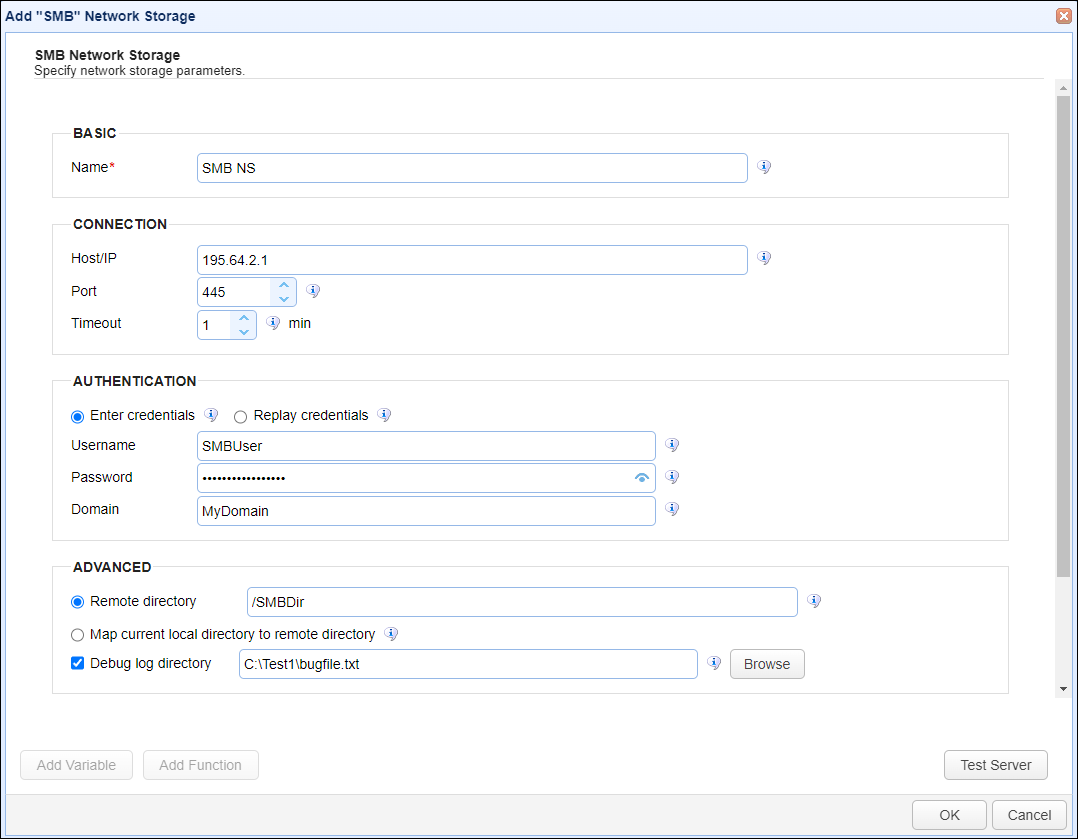The SMB network storage option allows you to use an existing SMB server as additional storage space.
Adding the SMB network storage
In the desired domain, navigate to the ACCOUNTS > Network Storage module. Click on the Add button, or right click anywhere in the grid area and select Add from the pop-up menu. In the Add Network Storage dialog window, select SMB as the Protocol, then click on OK. The Add "SMB" Network Storage dialog will appear as depicted in the image below.
Figure 442

Basic
Name - The unique name for this network storage.
Connection
Host/IP - The remote hostname or IP address for this network storage.
Port - The remote port for this network storage.
Timeout - The maximum time (in minutes) for establishing a connection to a remote server.
Authentication
Enter credentials - If selected, allows the administrator to set static credentials to connect to the remote FTP server.
| • | Username - The username for connecting to the remote server. |
| • | Password - The password for connecting to the remote server. |
Replay credentials - If selected, uses the current user's credentials instead of a static Username and Password to connect to the remote FTP server. Note: This feature will not work for users who authenticate to the SFTP service via public key authentication.
Domain - The Domain name
Advanced
Remote directory - If selected, maps the local virtual path to a specific remote path on the target server.
Map current local directory to remote directory - If selected, maps the local virtual path to remote path having the same name as the local virtual path. For example, if network storage is mapped to virtual path /path, then when connecting to the network storage, it will drop the user in /path directory on target server.
Debug log directory - If checked, this is the directory where debug logs will be stored for this network storage.
Tags
Tags - If specified, this is the one or more tags that are used to limit which administrators have access to the network storage.